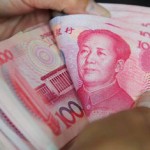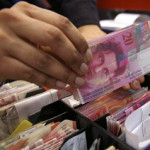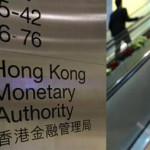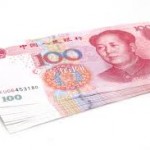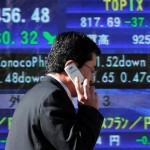Yuan to Start Direct Trading With Pound from tomorrow
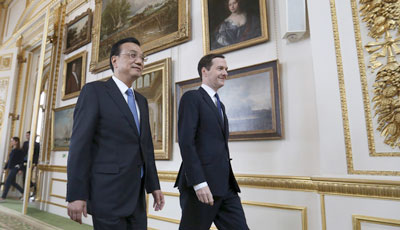
China will allow the yuan to be exchanged directly for British pounds from tomorrow in Shanghai as the world’s second-largest economy promotes the use of its currency in global trade and finance.
“This is an important step in strengthening bilateral economic and trade connections between China and the United Kingdom,” the People’s Bank of China said in a statement on its website. The move will help lower foreign-exchange transaction costs between the two nations, it added.
The pound will become the fifth major currency to trade directly against the yuan in Shanghai, joining the Australian and New Zealand dollars, the Japanese yen and the U.S. dollar. China’s currency ranked seventh for global payments in April, according to the Society for Worldwide Interbank Financial Telecommunications, and the U.K. trailed both Hong Kong and Singapore in handling these transactions. Plans were announced in October to make the Singapore dollar convertible into yuan.
“Having the direct quote for pound-yuan trading improves transparency for the end user and helps lay the foundation for the use of the yuan as a new global currency,” Beng Hong Lee, the Shanghai-based head of markets for China at Deutsche Bank AG, said in an e-mail today. “We expect that the introduction of yuan clearing in London will have a significant accelerating effect on the use of the yuan in London.”
Trade Goal
Chinese Premier Li Keqiang is visiting the U.K. and yesterday outlined a goal of expanding commerce between the two countries to $100 billion by the end of next year. Trade deals valued at 14 billion pounds ($24 billion) were signed during the trip, according to British Prime Minister David Cameron.
The introduction of the new currency pair comes eight months after plans for such a move were first announced. Trading will start from tomorrow, according to a statement on China Foreign Exchange Trade System’s website.
The PBOC announces a daily reference rate for the yuan against the British pound at around 9:15 a.m. in Shanghai on each trading day, even prior to the start of the direct trading. The rate was set at 10.4413 per pound today, compared with 10.4439 yesterday, according to the China Foreign Exchange Trade System.
Direct trading means the fixing will be computed without involving a cross rate with the U.S. dollar. HSBC Holdings Plc was selected by the PBOC to be among the first batch of market makers for the direct trading of the Chinese and British currencies, it said in a statement today.
Clearing Bank
The PBOC today appointed China Construction Bank Co., the nation’s second-largest lender, as London’s first yuan clearing bank. Together with the direct linkage of yuan and pound, that will add weight to London’s bid to be Europe’s offshore yuan hub amid competition from Frankfurt, Paris and Luxembourg.
Singapore announced plans to start direct trading between its currency and the yuan in October, a week after that of the U.K. was put forward. South Korea is making preparations for a direct link of the won and the yuan, aiming to start it within this year, Reuters reported today, citing Choi Hee-nam, head of the finance ministry’s international finance bureau.
The Bank of England “is committed to further supporting the cross-border use of the RMB in a manner that is consistent with our domestic responsibilities,” Governor Mark Carney said in a statement today, referring to renminbi, the official name of the Chinese currency.
‘Extraordinary Expansion’
“Connecting British firms and markets to China’s extraordinary expansion is a key part of our economic plan, because it brings jobs and investment to our country,” George Osborne, Chancellor of the Exchequer, said in a statement today. “I welcome today’s appointment as another major step forward for the U.K. as the western hub of Chinese finance.”
The yuan slipped 0.07 percent to close at 6.2314 per dollar in Shanghai today. The Chinese currency has dropped 2.8 percent against the dollar this year, the worst performance in Asia, according to data compiled by Bloomberg.
“We expect more yuan internationalization and liberalization measures to be steadily rolled out,” said Paul Mackel, the Hong Kong-based head of Asian currency research at HSBC. “But renminbi internationalization does not equal appreciation. This year has demonstrated that these are separate stories for the renminbi.”
Source: businessweek









